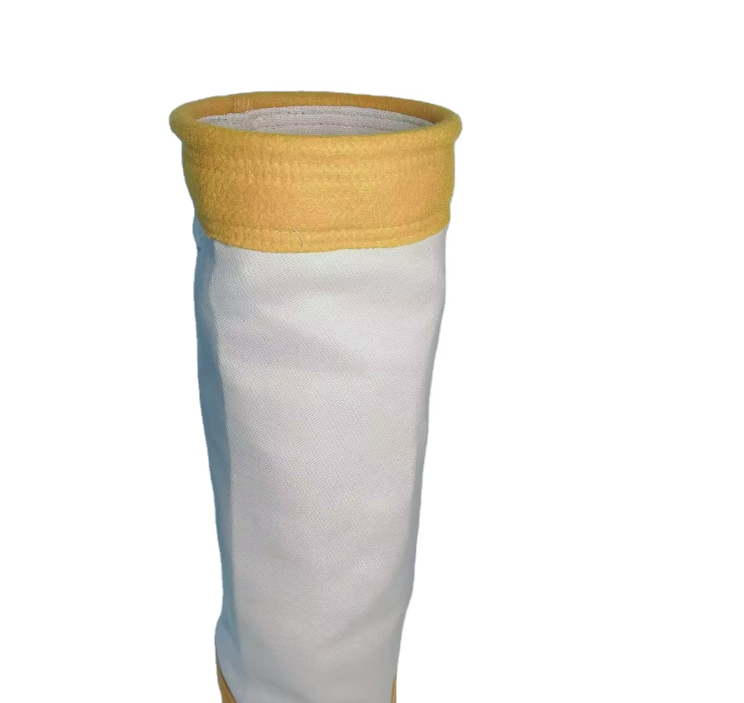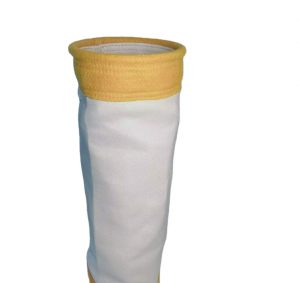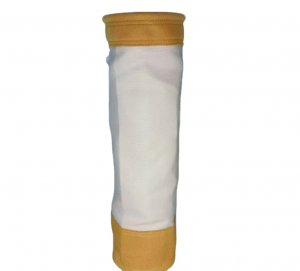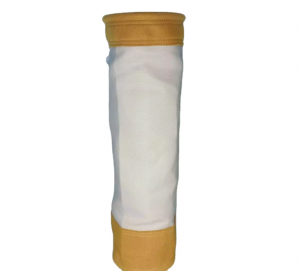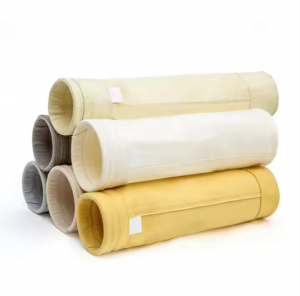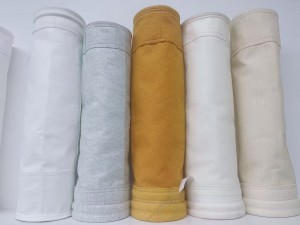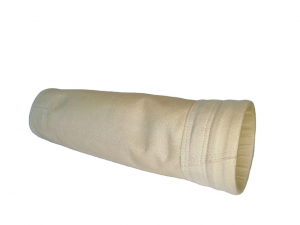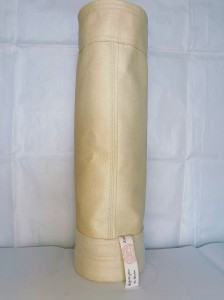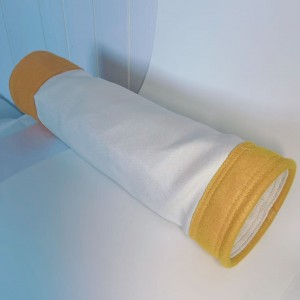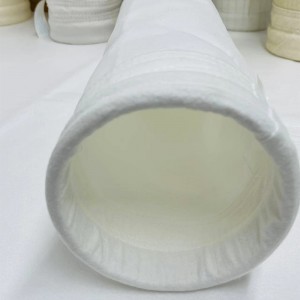Fiberglass Filter Bags: The Backbone of Industrial Dust Removal
In the process of industrial production, dust pollution has always been a serious problem that needs to be solved urgently. It not only causes damage to the environment and affects air quality but also may pose a threat to the health of workers. To effectively address this challenge, various dust removal equipment and technologies have emerged, among which fiberglass filter bags play a pivotal role and can be called the backbone of industrial dust removal.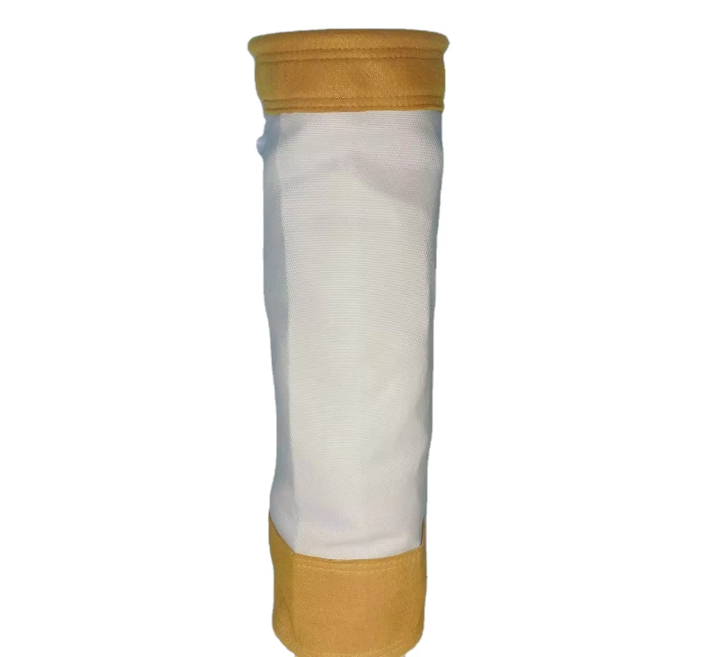
As the name suggests, fiberglass filter bags are filtering devices made mainly from glass fibers. Glass fibers have many excellent properties, laying a solid foundation for the high-performance of fiberglass filter bags. Firstly, glass fibers have excellent high-temperature resistance. In many industrial production scenarios, such as iron and steel smelting, cement manufacturing, and coal-fired power generation, a large amount of high-temperature flue gas is generated. Ordinary filtering materials may age, deform, or even lose their filtering function quickly in high-temperature environments, while fiberglass filter bags can operate stably for a long time at temperatures up to 260°C, and the instantaneous temperature resistance peak of some special models of fiberglass filter bags can even reach 300°C. This enables it to perfectly adapt to these high-temperature working conditions, ensuring efficient dust filtering under harsh temperature conditions, and guaranteeing the continuity of the production process and environmental protection requirements.
Secondly, fiberglass filter bags have excellent chemical stability. Industrial waste gas has complex components and often contains various corrosive substances such as acids and alkalis. Glass fibers themselves are inert to most chemical substances and are not easy to react with these corrosive media. This characteristic allows fiberglass filter bags to maintain structural integrity and stable filtering performance when facing waste gas containing a large amount of corrosive gases generated in industries such as chemical industry and waste incineration. They will not cause filter bag damage or leakage due to chemical corrosion, thus ensuring the long-term stable operation of the dust removal system and reducing equipment maintenance costs and the frequency of filter bag replacement.
Furthermore, fiberglass filter bags perform extremely well in terms of filtration precision. Their unique fiber structure forms fine filtering pores, which can effectively intercept dust particles of various particle sizes. Especially for inhalable particles that are extremely harmful to human health (such as PM10 and PM2.5), fiberglass filter bags can achieve efficient capture, stably controlling the emission concentration at an extremely low level. Some high-quality fiberglass filter bags can even reduce the emission concentration to below 10mg/m³, and in some working conditions, it can even reach 5mg/m³, fully meeting the increasingly strict environmental protection emission standards and providing a strong guarantee for enterprises to achieve green production.
In addition to the above performance advantages, fiberglass filter bags also have good mechanical strength and wear resistance. In actual use, filter bags need to withstand the scouring of air flow, the friction of dust, and the mechanical force during the ash cleaning process. With its high tensile strength, fiberglass filter bags can maintain stable shape under these complex mechanical stresses, are not easy to break or damage, and thus have a long service life. This not only reduces the number of filter bag replacements, lowers the operating costs of enterprises but also improves the reliability and stability of the dust removal system, reducing the risk of production interruption caused by equipment failures.
In various fields of industrial production, fiberglass filter bags play an indispensable role. In the iron and steel industry, a large amount of high-temperature flue gas containing pollutants such as metal oxides and dust is generated in various links from iron ore sintering, ironmaking to steelmaking. Fiberglass filter bags can effectively filter impurities in these flue gases in high-temperature environments, ensuring that emissions meet standards, and at the same time, recovering valuable metal dust to realize the recycling of resources. In the cement industry, the waste gas emitted from the head and tail of cement kilns has high temperature, high dust concentration, and complex components. Relying on its characteristics of high-temperature resistance, corrosion resistance, and high-precision filtration, fiberglass filter bags have become key equipment for controlling dust pollution in the cement production process, ensuring the environmental protection and sustainability of cement production. In the power industry, the flue gas generated by the combustion of coal-fired boilers contains a large amount of fly ash and other particles. Using fiberglass filter bags to filter these flue gases can significantly reduce dust emissions, reduce pollution to the atmospheric environment, and at the same time protect the normal operation of power generation equipment and improve power generation efficiency.
In addition, fiberglass filter bags are also widely used in many industries such as chemical industry, ceramics, and glass manufacturing. In whatever industrial scenario, it solves the problem of dust pollution for enterprises with its excellent performance, helps enterprises realize clean production, and makes important contributions to environmental protection and sustainable development.
With the increasingly strict environmental protection requirements and the continuous progress of industrial technology, fiberglass filter bags are also continuously innovating and developing. On the one hand, researchers are constantly exploring new production processes and material formulas to further improve the performance of fiberglass filter bags. For example, by improving the drawing process of glass fibers, the fibers become more uniform and delicate, thereby improving the filtration precision and air permeability of the filter bags; adopting new surface treatment technologies to enhance the waterproof and oil-proof performance of the filter bags, enabling them to better adapt to humid and oily industrial environments. On the other hand, to meet the special needs of different industries, fiberglass filter bags are also developing in the direction of diversification and personalization. For some application scenarios with special requirements for the size and shape of filter bags, manufacturers can provide customized services to produce filter bag products that meet customer needs.
In conclusion, as one of the core equipment in the field of industrial dust removal, fiberglass filter bags have been widely used in many industrial industries and play an irreplaceable role with their advantages such as excellent high-temperature resistance, corrosion resistance, high-precision filtration, and good mechanical properties. With the continuous innovation and development of technology, it is believed that fiberglass filter bags will continue to play an important role in industrial production and environmental protection in the future, contributing more to the realization of green and sustainable development goals.
Product Detail
Product Tags
Write your message here and send it to us
